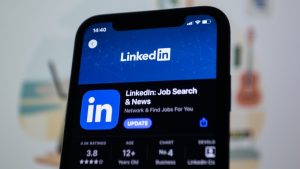Regulations.gov is an online source where you can find U.S. government regulations from 300 federal agencies, ranging from car safety to human health. This site not only assists the public in understanding the rule-making process of federal regulations but allows comments on the process that are taken into consideration before final rules are established. As their slogan states, this website exists to allow ‘your voice in federal decision-making.’
Regulations.gov can help keep you ahead of the rules and regulations in your industry and give you an idea of what people are saying about it. Here’s what to know.
What can I find on Regulations.gov?
With over 300 agencies proposing new regulations, there are documents for every business beat. For example, a proposed rule for the reconsideration of air quality standards by the Environmental Protection Agency is currently posted on the website and accepting comments until March 28th. From here you are able to browse through posted comments from individuals – though not every comment is made publicly available. The amount of comments made public depends on the agency that may choose to withhold or redact certain submissions due to ‘private or proprietary information, inappropriate language, or duplicate/near duplicate examples of a mass-mail campaign.’
For this particular rule proposal, there are over 150 public comments from the 28,000 comments received thus far. This page also refers you to over 1000 public comments on related documents in this docket, which are past rules, notices, and supplemental material related to this issue – essentially a folder with everything you need to know to get you up to speed.
The Federal Trade Commission currently has a proposed non-compete clause rule that would ‘provide that it is an unfair method of competition for an employer to enter into or attempt to enter into a non-compete clause with a worker.’ There are already 5,000 public comments available to browse. This may be a rule that a labor reporter may want to keep an eye on.
If you are interested in a specific proposal you can subscribe to that docket to receive email notices. The notifications will send you daily emails on documents or comments that have been added, removed, or modified.
With so much information how do I know where to begin?
Twice a year, every agency publishes a Regulatory Agenda in the Spring and Fall. These are made available on Regulations.gov and give an overview of the rule-making proceedings that are planned, continuing, or recently completed. To start your search you can select an agency on reginfo.gov. The latest agenda – Fall 2022 – for the Department of Labor has over 40 regulations in the proposed rule phase, 26 in the final stages, and 9 in the pre-rule stage. You can learn more about what these stages mean here.
Perusing this list you can see there are rules for pooled employer plans, nondiscrimination requirements for group health plans, and OSHA safety regulations. These lists can help you narrow down where to start.
What data can I get?
Although it varies by agency, data on Regulations.gov goes back as far as 2002, with new data being added every day.
You are able to download metadata from Regulations.gov individually or you can bulk download by agency, docket, or document. Once you decide on what you want to look into, you can choose the document type – notices, rules, public submissions, etc. – and the date range, enter your email address and you will receive the documents in a CSV file within 24 hours.







